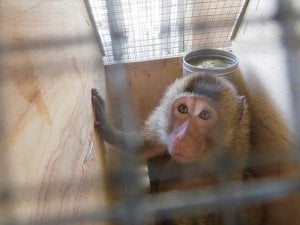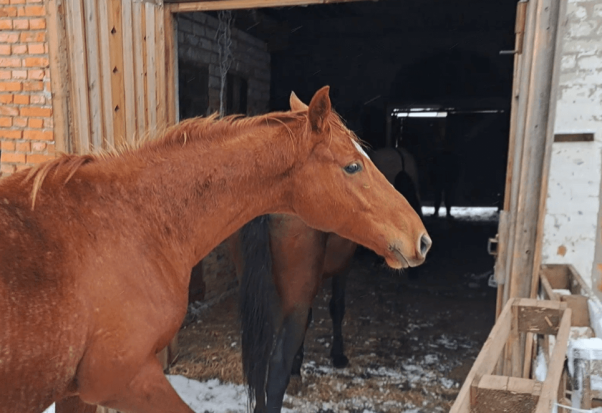Chinchillas were left to waste away and baboons were repeatedly subjected to caesarean sections at Eastern Virginia Medical School (EVMS), a piglet starved to death at Virginia Tech, and a rabbit was left to suffer with a broken leg at Old Dominion University (ODU): These are only a few of the violations of federal animal welfare laws documented by U.S. Department of Agriculture inspectors at publicly funded universities in Virginia, a new PETA website exposes.
By obtaining and poring over federal reports and documents, PETA has created a repository of information about Virginia’s largest public universities, which receive millions in taxpayer dollars every year despite critical and repeated violations of the most basic requirements of federal animal welfare laws. The new website includes sections on EVMS, ODU, the University of Virginia (UVA), Virginia Commonwealth University (VCU), and Virginia Tech; the history of experiments on animals in the state; and a timeline of legislative efforts toward increasing transparency and accountability in Virginia laboratories, with new bills expected during the 2024 General Assembly session.
“With public money, Virginia Tech bought and experimented on beagles from Envigo for years before PETA exposed chronic neglect, deprivation, and death at Envigo’s dog prison, which eventually closed down,” says PETA Senior Vice President of Cruelty Investigations Daphna Nachminovitch. “Virginians have the right to know who their public universities confine and experiment on, for what purported purpose, and how they fare.”
While dollar amounts awarded by the Commonwealth of Virginia to each university for research and development are available, information breaking down how much of the total amount funds animal experiments isn’t, and universities lobbied heavily against legislation to require such transparency.
The new website lists dozens of chilling violations, including the following:
- At Virginia Tech, which received $60 million in state funds and $216 million in federal funds, a 6-day-old piglet died of starvation after workers removed the baby from their mother and only occasionally administered milk with a syringe.
- At EVMS, which received $176,000 in state funds and $14 million in federal funds, four chinchillas lost up to 30% of their bodyweight after being used for 21 months in an experiment that was approved to run for only 22 weeks, baboons were subjected to up to six successive C-sections in illegal experiments, and a rhesus macaque was deprived of medical care for more than seven hours despite being barely responsive and paralyzed. He was eventually killed.
- At VCU, which received $31 million in state funds and $160 million in federal funds, more than a dozen mice died between February 2020 and October 2022 after going without food or water for several days.
- At ODU, which received $17 million in state funds and $25 million in federal funds, a rabbit was found having difficulty breathing, with his head tilted back and a broken leg. He died while waiting for an hour to be euthanized because workers “did not have access to euthanasia solution,” according to a federal report.
- At UVA, which received $8 million in state funds and $297 million in federal funds, four dying or dead mice were seen on the ground near a laboratory building. An animal handler admitted to having “released” approximately 45 mice due to a “mental breakdown.”
A published photo shows a rabbit being experimented on at UVA.
For more information on PETA’s investigative newsgathering and reporting, please visit PETA.org, listen to The PETA Podcast, or follow the group on X (formerly Twitter), Facebook, or Instagram.
The post New Website Lets Taxpayers Discover Severe Animal Neglect in Virginia Laboratories appeared first on PETA.



